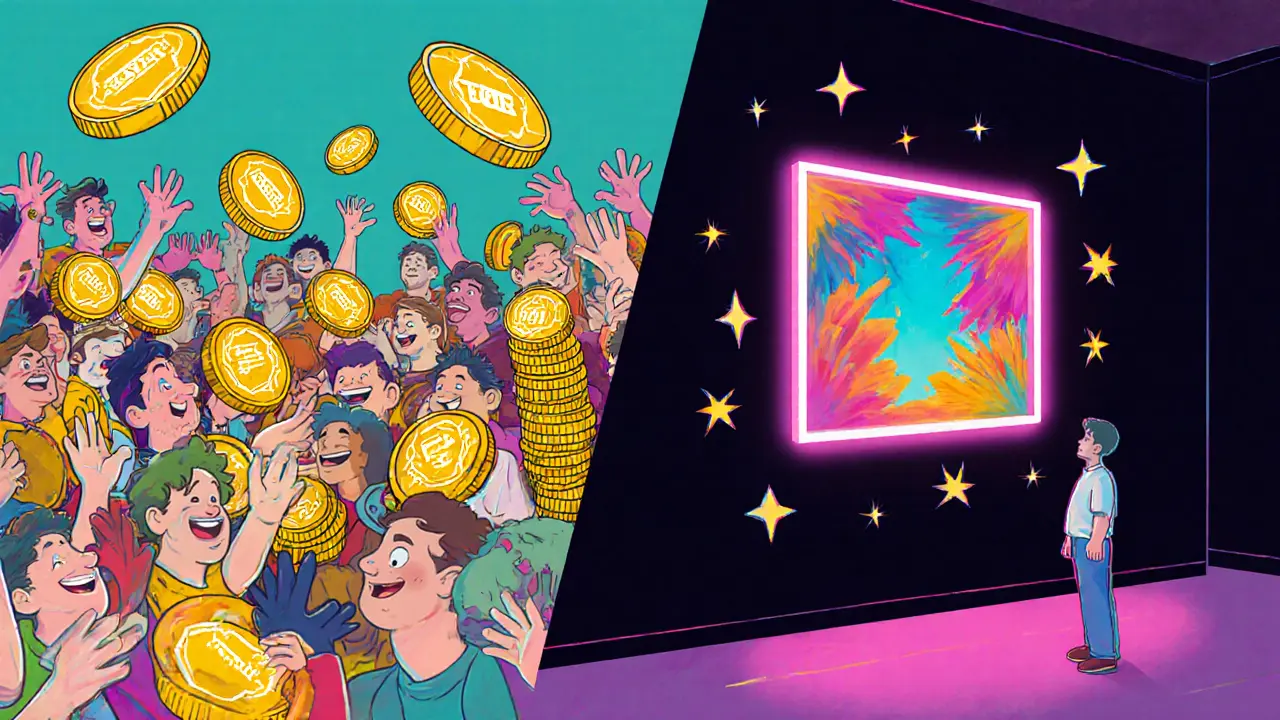
Social Token vs NFT Decision Guide
Use this guide to determine whether a Social Token or NFT better suits your project goals.
Social Token
Fungible tokens that grant access, rewards, or governance to a community.
- Low transaction costs
- Easy scaling
- Community-focused
- Good for ongoing engagement
NFT
Unique digital assets with proven ownership and scarcity.
- High value potential
- Scarcity-driven
- Ownership focused
- Great for collectibles
Select the primary goal(s) of your project:
Choose your preferred blockchain characteristics:
Recommended Asset Type
Why:
Quick Takeaways
- Social tokens are fungible, community‑oriented assets; NFTs are non‑fungible, ownership‑focused collectibles.
- Social tokens use standard fungible token frameworks, keeping transaction costs low; NFTs rely on the ERC‑721 standard, which is pricier per token.
- Choose social tokens when you need ongoing access, rewards, or governance; choose NFTs when scarcity and unique ownership drive value.
- Hybrid projects are emerging-creators can sell NFTs for art while issuing social tokens for fan engagement.
- Regulatory uncertainty is higher for social tokens, while NFTs face clearer, albeit evolving, legal guidance.
Ever wondered why some projects hand out "coins" to fans while others sell one‑of‑a‑kind digital art? The answer lies in the fundamental design of two blockchain‑based asset families: Social Token is a fungible digital asset that grants access to experiences, communities, or creator perks and Non‑Fungible Token (NFT) is a unique digital certificate of ownership built on the ERC‑721 protocol. This guide breaks down their technical makeup, real‑world uses, and how to decide which fits your goals.
What Exactly Is a Social Token?
A social token works like a crypto‑style membership card. Because it’s Fungible Token (all units are interchangeable), one token equals another, just like a dollar bill. Holders can swap them 1:1 on exchanges, send them in batches, or use them for micro‑rewards without worrying about individuality.
Creators typically issue three flavors:
- Creator Token issued by an individual artist, athlete, or influencer - think of Sting’s fan token that unlocks backstage clips.
- Community Token designed for a group or DAO, often carrying voting power - the Shiba Inu community token that grants private Telegram access.
- Platform Token used to incentivize activity on a specific blockchain service - like a gaming platform’s reward token.
Because they’re fungible, creators can set a clear exchange rate (e.g., 1 token = $0.10). This transparency makes it easy for fans to understand the value and for creators to predict cash flow.
What Exactly Is an NFT?
An NFT lives on the Ethereum blockchain that hosts the ERC‑721 standard for unique tokens. Each token carries its own metadata-image URL, audio file, or game item-making it Non‑Fungible Token (no two are identical). The ERC‑721 protocol guarantees that the token’s ID is distinct, and the associated metadata is immutable (unless the contract allows updates).
Typical NFT use cases include:
- Digital art collections (Beeple’s $69M sale).
- In‑game items such as swords or skins.
- Virtual real‑estate in metaverse worlds.
- Music albums, concert tickets, and other limited‑edition media.
Because each NFT is a one‑off, its price is driven by scarcity, creator reputation, and market hype, making valuation less predictable than a social token’s defined rate.
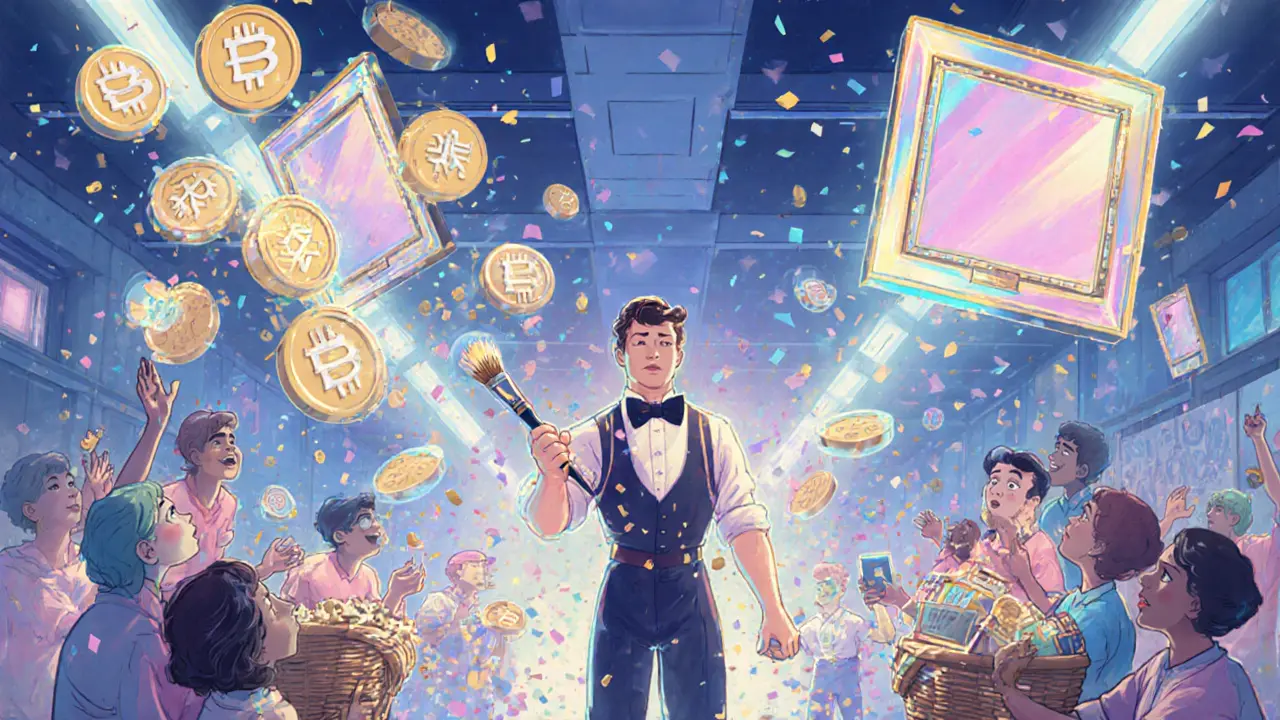
Core Technical Differences
| Attribute | Social Token | NFT |
|---|---|---|
| Fungibility | Fungible (identical value) | Non‑fungible (unique) |
| Typical Standard | ERC‑20 or similar | ERC‑721 (or ERC‑1155 for semi‑fungible) |
| Primary Use | Community access, rewards, governance | Ownership of unique digital assets |
| Transaction Cost (Average Gas) | Low - batch transfers cheap | Higher - each mint requires separate gas |
| Scalability | High - millions of tokens easy to issue | Limited - each token adds metadata overhead |
| Liquidity Model | Exchange‑rate based, often on DEXes | Marketplace‑driven, price set by bidder |
The table shows why social tokens are cheaper to launch at scale, while NFTs demand more gas and storage per item.
Where Each Asset Shines
Social Token Strengths
- Continuous engagement - token holders receive regular perks, not a one‑time asset.
- Simple economics - clear 1:1 exchange rate simplifies onboarding.
- Governance - tokens can double as voting shares in a DAO.
- Low barrier - creators can mint a token in minutes using existing tools.
NFT Strengths
- Scarcity - uniqueness drives collector demand and high price potential.
- Proven ownership - blockchain‑backed certificates protect against forgery.
- Creative monetization - artists can embed royalties that trigger on every resale.
- Cross‑platform utility - NFTs can be used as in‑game items across multiple worlds.
Potential Pitfalls
Social tokens can run into regulatory gray zones. Because they resemble securities in some jurisdictions, creators risk compliance trouble if they promise profit‑sharing.
NFTs, on the other hand, suffer from market volatility. Prices can swing wildly, and the high gas fees on Ethereum can erode profit margins, especially for lower‑priced collectibles.
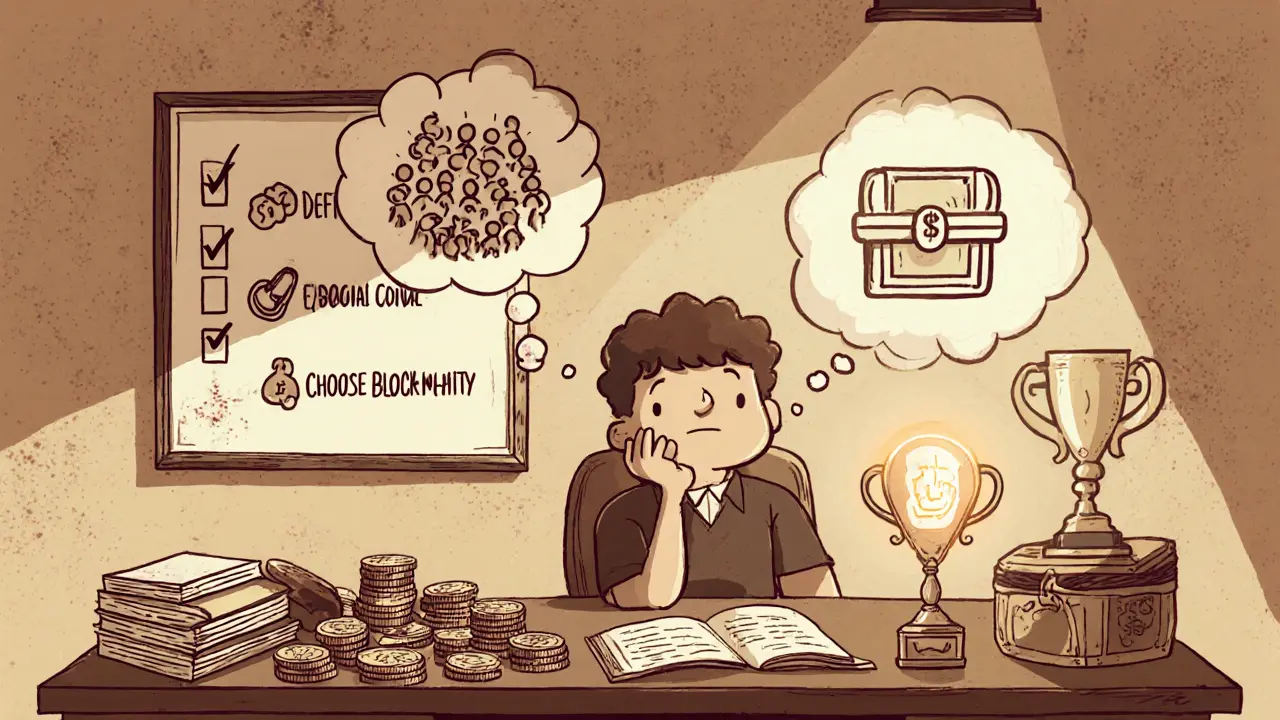
Hybrid Models - Best of Both Worlds?
Some artists now issue an NFT series for a limited‑edition artwork while simultaneously launching a social token that grants holders exclusive studio tours. This combo lets fans own something rare **and** stay in a community that gets ongoing benefits. The hybrid approach is gaining traction because it captures the excitement of scarcity while providing a steady income stream for creators.
Implementation Checklist for Creators
- Define the goal - access (social token) or ownership (NFT)?
- Select the blockchain - Ethereum for ERC‑721 NFTs, Polygon or Binance Smart Chain for cheaper social tokens.
- Choose a token standard - ERC‑20 for fungible tokens, ERC‑721 for unique assets.
- Design tokenomics - set supply, price, and any utility (e.g., voting rights).
- Develop or use a launch platform - many no‑code tools exist for both token types.
- Plan community engagement - content calendar for social token perks, marketing launch for NFT drops.
- Stay compliant - consult legal counsel about securities laws if you promise profit.
Following these steps reduces technical friction and helps you focus on the value you want to deliver.
How to Decide Which Asset to Use
If your primary aim is to build a loyal fan base that interacts regularly, go with a social token. It’s cheaper, easier to scale, and lets you embed governance.
If you’re looking to monetize a single piece of digital art or a limited‑edition game item, NFT is the clear choice. The scarcity factor can unlock high‑ticket sales and secondary‑market royalties.
For projects that need both community depth and collectible hype, consider launching both - start with a social token to seed the community, then release a limited NFT series as a milestone reward.
Frequently Asked Questions
Can I turn an NFT into a social token?
You can’t technically convert the token type, but you can issue a new social token that represents access to the NFT’s creator community. Many projects bundle them together as separate contracts.
Which gas fees are higher: minting a social token or an NFT?
Minting an NFT usually costs more because each token requires unique metadata storage. Social tokens use batch minting on ERC‑20, which is far cheaper per unit.
Do social tokens give me ownership rights?
They grant usage rights, voting power, or access, but not legal ownership of a specific asset like an NFT does.
Are NFTs considered securities?
Regulators are still debating this. Generally, NFTs that are sold purely as collectibles are less likely to be classified as securities, but if they promise profit sharing they could fall under securities law.
What’s the best blockchain for social tokens?
Polygon, Binance Smart Chain, and Solana offer lower fees and fast confirmation times, making them popular for large‑scale social token projects.
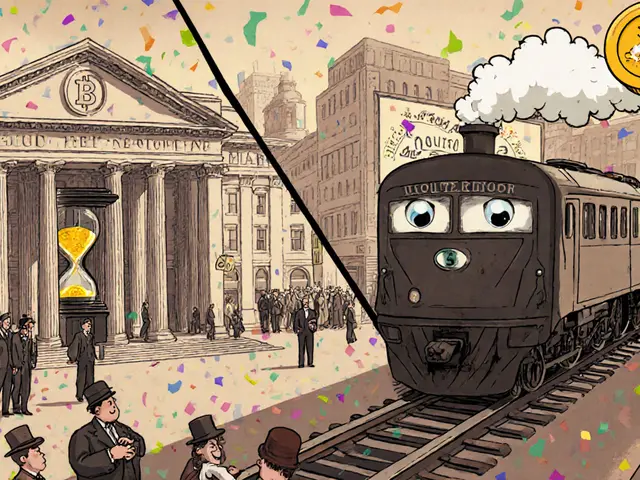
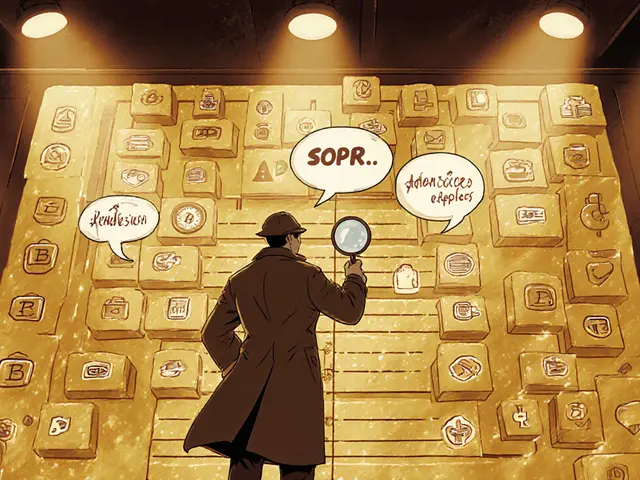

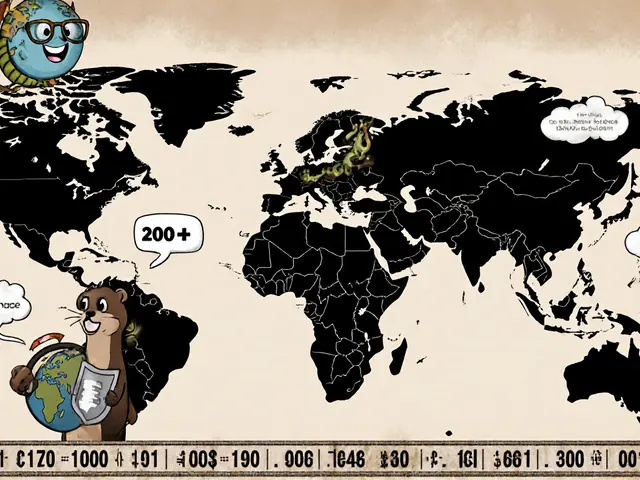
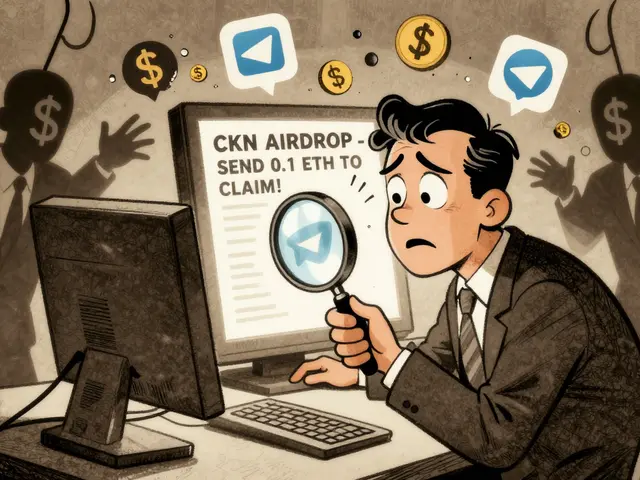
Comments (13)
Ali Korkor
Love this breakdown. If you're just starting out as a creator, social tokens are the way to go. Low cost, easy to explain to fans, and you can build real loyalty without needing a tech team. I've seen people go from 50 followers to 5k just by giving out a simple token for commenting on posts.
Akinyemi Akindele Winner
Y’all acting like this is some genius innovation. NFTs were a pyramid scheme dressed in crypto glitter and social tokens are just the same scam with a new name. You think some dude in Lagos buying a $0.02 token is gonna get ‘governance’? Nah. He’s gonna get a Discord invite and a meme. The whole thing’s a performance art piece funded by delusion.
Serena Dean
Really appreciate how you laid out the hybrid model - that’s where the future is. I’ve been working with a musician who sold 50 NFTs of unreleased tracks, then issued 10,000 social tokens for access to live Q&As and early demos. The NFT buyers felt special, the token holders felt involved. Win-win. No need to pick one - do both.
James Young
You missed the biggest point. Social tokens are unregistered securities in 80% of jurisdictions. The SEC is already targeting projects like this. If you think you can issue a token and say ‘it’s not an investment’ while promising exclusive content and voting rights, you’re either naive or lying. This guide is dangerously misleading.
Sean Huang
Think about it - what if the whole NFT/social token thing is a distraction? What if the real game is centralized platforms like Patreon and Substack quietly buying up blockchain tools to co-opt the tech and kill decentralization? They want you thinking about tokens so you don’t notice they’re just repackaging subscription models with gas fees. The blockchain is a Trojan horse for Big Tech. I’ve seen the documents.
Zach Crandall
While the technical distinctions are accurate, the underlying assumption-that these tools serve the creator or community-is fundamentally flawed. The infrastructure remains centralized, the wallets are custodied by third parties, and the ‘decentralized’ governance is often controlled by a core team with 60% of the supply. This is not liberation-it’s rebranding feudalism with smart contracts.
The notion that ‘low transaction costs’ make social tokens accessible ignores the fact that most users still require fiat on-ramps, KYC, and technical literacy. The average fan cannot even interpret a wallet address, let alone participate in governance. This is a solution in search of a problem that doesn’t exist for 99% of people.
Furthermore, the environmental impact of Ethereum-based tokens, even on Layer 2s, is still non-trivial when scaled to millions of transactions. The greenwashing here is as offensive as it is transparent.
And yet, we are told to celebrate this as innovation. Innovation for whom? For the developers who built the tools? For the early adopters who flipped tokens for profit? Or for the actual fans who are now burdened with managing private keys to access a Discord channel?
The emotional labor of building community is being monetized into a ledger entry. The intimacy of fan-creator relationships is being reduced to a balance on a screen. We are not building a new economy-we are digitizing alienation.
I understand the appeal. I once believed in this too. But the more I dig, the more I see the same patterns: extractive, performative, and ultimately unsustainable. The real revolution isn’t in the token-it’s in the refusal to tokenize everything.
madhu belavadi
Ugh I just spent 3 hours trying to mint a social token and now my MetaMask is frozen and I think I lost my private key. I just wanted to get access to a Discord server. Why does everything have to be so complicated??
Dick Lane
My cousin runs a small art collective and they did the hybrid thing-10 NFTs for collectors, 5000 social tokens for fans. The NFTs sold out in 12 minutes. The social tokens? People are still using them to vote on mural themes and get free prints. It’s not flashy but it’s real. Real community, real value. No hype needed.
Norman Woo
wait so if i mint a social token on polygon and then the polygon chain gets hacked… is my access to the discord gone? or is it still in my wallet? i dont even know what a wallet is i just downloaded metamask cause my friend said its cool
Andrew Morgan
Bro I’ve seen this exact thing play out. A guy launched a social token for his podcast, gave out 10k tokens, everyone got a badge in Discord. Then he did a surprise NFT drop of his favorite episode artwork. People who held the token got a 50% discount. Guess what? The NFTs sold out in 8 minutes. That’s the magic. Not the tech. The trust.
Chloe Jobson
Hybrid models are the only sustainable path forward. Social tokens enable ongoing engagement; NFTs anchor exclusivity and provenance. The synergy is elegant: one sustains, the other elevates. Regulatory clarity will follow adoption, not precede it. Focus on utility, not speculation.
Patrick De Leon
Listen here. Ireland has more blockchain startups per capita than the US. We don’t need your American crypto bros telling us what’s ‘scalable’. Social tokens are the future. NFTs are dead. The EU is already drafting legislation to regulate them as utility tokens. You’re clinging to a corpse.
MANGESH NEEL
Let me be clear: anyone who thinks social tokens are ‘ethical’ or ‘community-driven’ is either brainwashed or lying. These are not tokens-they are psychological traps. You give people a digital coin and suddenly they feel like they matter. They vote on a meme. They get a ‘badge’. They think they’re part of something. But they’re not. They’re just data points in a financial model. The creator gets rich. The fans get a notification. That’s not community. That’s manipulation dressed in Web3 pajamas. And you know what? I’ve seen it destroy friendships, families, entire online communities. And nobody talks about it because they’re too busy checking their token balance.